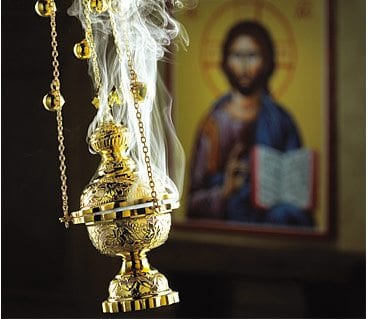Skip to content
SACRED TRADITION -The Pillar of the Orthodox ChurchNicholas Athanasou2021-06-26T20:37:21+10:00
SACRED TRADITION -The Pillar of the Orthodox Church
The Orthodox Church believes that Sacred Tradition is the inspired revelation of God accepted and taught throughout the Church, and not merely an independent source of dogmatic authority to be regarded as a supplement to biblical revelation.
Tradition is understood as the deposit of faith given by Jesus Christ to the Apostles, as expounded by the Church Fathers, and expressed in the world by the practices of the Church. It is not a principle striving to restore the past, using the past as a criterion for the present. Further, Tradition is the constant abiding of the Holy Spirit and not the memory of words. It is a charismatic and not a historical event.
Since Sacred Tradition is a vast topic, it is usually divided into:
-
Biblical – This comprises the canons (book collections) of the Old and New Testaments. As the last book of the New Testament was written about 90 AD, until then the teachings of the Lord and the Apostles were transmitted by word of mouth.
-
Apostolic – The teachings of the Apostles were passed to their immediate successors, the bishops, who were called Apostolic Fathers, and to the other members of the Church, mostly orally, except for the epistles they themselves had written to the various local Churches. However, Apostolic Tradition also considers expressions of faith that were left to us by the Apostles, such as the fifty days celebrations for Easter, prayers for the departed, for the Passion of Jesus and His Glorious Resurrection.
-
Patristic – After the passing of the Apostles, the Fathers of the Church collected carefully all the Traditions and customs left by them, wrote them down in a systematic manner, added their own teachings, and these writings formed the definitions and canons of the Ecumenical Councils, the decisions of which are accepted and obeyed by all members of the Orthodox Church. This prevented the dissemination and survival of erroneous teaching (heresies), and maintained the purity of divine revelation and Tradition.
-
Ecclesiastical – Ecclesiastical Tradition includes all teachings, dogmas and practices of the Church, from the time of the Apostles till the present.
The Sacred Tradition of the Orthodox Church was completed and sealed by the Seventh Ecumenical Council. It is only the Orthodox Church which has as a source of its teaching the Sacred Tradition, which is genuine and of equal value to the Holy Scriptures.
Whereas Sacred Tradition includes all that Holy Scripture contains and teaches, it also contains certain teachings and practices not found in Scripture. Some examples of such apparent differences are mentioned below, so that people can see and understand the reasons for their existence.
Buildings of Churches should face east, and when praying we should try to face east. In so doing we are facing the Rising Sun, the Light of the World, Jesus Christ.
Also, we make the sign of the Cross by joining three fingers (thumb, index & middle fingers) – denoting the Holy Trinity, whilst the ring and little fingers are bent into the palm, denoting the Divine and Human nature of Jesus Christ.
We light candles when in the Church, an offering to the Light of the World. Nearly all the Sacraments of the Church use prayers, actions and procedures, as decided by the Church, so as to make them both relevant and meaningful to the people.
In Baptism, the child is immersed in the water three times, indicating the three days Jesus spent in the Tomb. The way we confess, the prayers during the offering of the Holy Gifts (Anaphora) in the Divine Liturgy, prayers and actions during Baptism, Holy Unction, Weddings, Funerals, Memorial services, tonsuring for Holy Orders, are some of the common ways that the Church has established so as to facilitate the accessing of these spiritual blessings, by God’s grace, through the reality of the material world.
The list is too long to be included in this publication, but each Christian should search and compile one for himself, to include as many as possible Sacred Customs used by the Church and derived from Sacred Tradition. May we all strive to preserve the traditions handed down to us by the Church.
Source: Lychnos October-November 2020
Page load link

